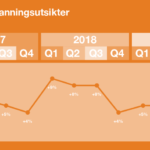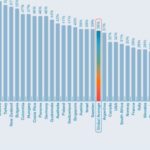Dato: 10-01-2017 11:35 CET Opprinnelig tittel på pressemeldingen: Takeda kjøper ARIAD Pharmaceuticals, Inc. Kategori: , kreft Helse Legemiddel Takeda to Acquire ARIAD Pharmaceuticals, Inc.
Takeda to Acquire ARIAD Pharmaceuticals, Inc.– Significantly Enhances Takeda’s Global Oncology Portfolio –– Accretive to FY2018 Underlying Core Earnings –– Reinforces Takeda’s Commitment to Developing Medicines for Patients Living with Cancer –
Strategic Highlights
Highly strategic deal which transforms global oncology portfolio and pipeline by expanding into solid tumors and reinforcingexisting strength in hematology
Accretive to Takeda’s Underlying Core Earnings by FY2018 and generates immediate and long-term revenue growth
Attractive value drivers include two very innovative precision medicines, Iclusig® (ponatinib) and brigatinib, an exciting early stage pipeline and cost synergies
oIclusig is a globally commercialized product with continued strong sales growth potential
oBrigatinib approval in the U.S. is expected in the first half of 2017, with peak sales potential over $1 billion and the potential to be the best-in-class ALK inhibitor
oTakeda will leverage ARIAD’s research and development capabilities and platform
Takeda retains financial flexibility with no impact on dividend policy
Cambridge, Mass. and Osaka, Japan, January 9, 2017 – Takeda Pharmaceutical Company Limited (TSE: 4502) (“Takeda”) and ARIAD Pharmaceuticals, Inc. (NASDAQ: ARIA) (“ARIAD”) today announced that they have entered into a definitive agreement under which Takeda will acquire all of the outstanding shares in ARIAD for $24.00 per share in cash, or an enterprise value of approximately $5.2 billion. The transaction has been approved unanimously by the boards of directors of both companies, and is expected to close by the end of February 2017, subject to required regulatory approvals and other customary closing conditions. Sarissa Capital, the holder of 6.6% of ARIAD’s common shares, as well as each of the members of ARIAD’s Board of Directors have agreed to tender their shares to Takeda pursuant to the offer.
“The acquisition of ARIAD is a unique opportunity that will enable us to positively impact the lives of more patients worldwide, advance our strategic priorities and generate attractive returns for our shareholders,” said Christophe Weber, president and chief executive officer of Takeda. “This is a very exciting time for Takeda as we will broaden our hematology portfolio and transform our global solid tumor franchise through the addition of two innovative targeted therapies. Opportunities to acquire such high-quality, complementary targeted therapies do not come often, and we are very excited about the potential for this transaction to benefit patients, our shareholders and other stakeholders.”
Paris Panayiotopoulos, president and chief executive officer of ARIAD, said, “We are very pleased to combine with Takeda, which will allow us to not only accelerate our mission to discover, develop and deliver precision therapies to patients with rare cancers, but also deliver immediate and meaningful value to our shareholders through a substantial cash premium. This exciting transaction is a testament to the hard work and dedication of ARIAD’s talented team of employees. We have tremendous respect for Takeda, and I believe our shared commitment to innovation and research-driven cultures will provide for a smooth transition.”
“This transaction is a great outcome for shareholders of ARIAD and Takeda. Both ARIAD and Takeda are passionate about helping cancer patients, and I believe the talent and resources of Takeda coupled with ARIAD’s pipeline and people will accelerate the development of cancer treatments. I would like to extend my deepest gratitude to the management team and everyone at ARIAD for their unrelenting dedication,” said Alexander J. Denner, Ph.D., Chairman of the Board of ARIAD.
Highly strategic deal which transforms global oncology portfolio and pipeline by expanding into solid tumors and reinforcing existing strength in hematology
The acquisition of ARIAD brings two innovative targeted therapies that will expand and enhance Takeda’s existing oncology portfolio. Brigatinib,an investigational drug product, has the potential to add a differentiated, global therapy in a genetically-defined subpopulation of non-small cell lung cancer (NSCLC). The addition of Iclusig will broaden Takeda’s strong hematology franchise to include chronic myeloid leukemia (CML) and a subset of acute lymphoblastic leukemia (ALL). Together, these two innovative targeted therapies will position Takeda for sustainable long-term growth in oncology.
Takeda’s track record of successful oncology product launches [ADCETRIS® (Brentuximab Vedotin), NINLAROTM (ixazomib) and VELCADE®(bortezomib)] means it has the experience and expertise required to deliver the successful launch of brigatinib and to ensure that it achieves global reach and share of voice thereafter.
Accretive to Takeda’s Underlying Core Earnings by FY2018 and generates immediate and long-term revenue growth
The transaction is a compelling opportunity for Takeda shareholders. It will provide immediate revenue, bring considerable long-term revenue potential and deliver synergy savings.
ARIAD provided calendar year 2016 revenue guidance for Iclusig of $170-180 million, and Takeda expects significant long-term revenue potential from the two lead assets.
Takeda projects the acquisition of ARIAD to be accretive to Underlying Core Earnings by FY2018 and broadly neutral in FY2017. Strong revenue growth and synergy savings will offset increased sales and marketing costs for the brigatinib launch.
Attractive value drivers include two very innovative medicines, Iclusig and brigatinib, an exciting early stage pipeline and cost synergies
Iclusig, a commercialized therapy with continued strong sales growth potential, delivers immediate value. Brigatinib, an investigational drug product with peak annual sales potential of over $1 billion, will generate significant long-term value for Takeda. U.S. approval is expected in the first half of 2017 with global filing thereafter. Beyond Iclusig and brigatinib, ARIAD’s commitment and expertise in targeted kinase inhibition linked to strong translational science generated further pipeline opportunities which provide additional long-term upside potential.
Takeda will leverage ARIAD’s R&D capabilities and platform, and largely absorb its R&D costs within Takeda's existing R&D budget. G&A cost synergies will be fully captured by FY2018.
Takeda retains financial flexibility with no impact on dividend policy
The transaction will be funded by up to $4.0 billion of new debt and the remainder from existing cash. FY2017 Net Debt/EBITDA is estimated at approximately 2.6x, which is expected to remain investment grade. The transaction has no impact on Takeda’s dividend policy.
Transaction terms
The acquisition is structured as an all cash tender offer by a subsidiary of Takeda for all of the outstanding shares of ARIAD common stock, followed by a merger in which remaining shares of ARIAD would be converted into the right to receive the same $24.00 cash per share price paid in the tender offer and ARIAD will become an indirect wholly owned subsidiary of Takeda.
The transaction is subject to the tender of a majority of the outstanding shares of ARIAD common stock as well as other customary closing conditions, including expiration of the applicable waiting period under the Hart-Scott-Rodino Antitrust Improvements Act of 1976 and the antitrust laws of applicable foreign jurisdictions. The transaction is expected to close by the end of February 2017.
Takeda Pharmaceuticals U.S.A, a wholly owned subsidiary of Takeda, has established Kiku Merger Co., Inc. to effect the transaction.
(1) Tender offeror Kiku Merger Co., Inc.
(2) Target company ARIAD Pharmaceuticals, Inc.
(3) Class of shares to be acquired Common stock
(4) Tender offer price $24.00 per share
(5) Acquisition amount(Aggregate tender offer price) Approximately $5.4 billion (estimate)* The amount is an estimated amount calculated by multiplying the number of the target company's shares (fully diluted basis) by the tender offer price per share. It does not include advisory fees.
(6) Payment Cash* Funded by up to $4.0 billion of new debt and the remainder from existing cash.
(7) Period of tender offer From January, 2017 to February, 2017** The initial period of the tender offer will commence within 10 business days following execution of the merger agreement with ARIAD [January 8, 2017 (U.S.)], and will close 20 business days after commencement. If the situation arises whereby the conditions of the tender offer are not satisfied, the period of the tender offer will be extended, but the extension period will not exceed May 2017 (or August 2017 if antitrust clearance not received).
(8) Minimum number of shares to be purchased Consummation of the tender offer will occur once the majority of shares outstanding of the company have been tendered and other customary closing conditions have been satisfied.
(9) Financial advisor to Takeda Evercore Partners
(10) Legal counsel to Takeda Cleary Gottlieb Steen & Hamilton LLP
(11) Financial advisor to ARIAD J.P. Morgan Securities LLC, Goldman, Sachs & Co., Lazard
(12) Legal counsel to ARIAD Paul, Weiss, Rifkind, Wharton & Garrison LLP
Overview of ARIAD
(1) Company name ARIAD Pharmaceuticals, Inc.
(2) Headquarters 125 Binney Street, Cambridge, Massachusetts 02142, USA
(3) Representative Paris Panayiotopoulos, President and Chief Executive Officer
(4) Business description ARIAD Pharmaceuticals, Inc., headquartered in Cambridge, Massachusetts is focused on discovering, developing and commercializing precision therapies for patients with rare cancers. ARIAD is working on new medicines to advance the treatment of rare forms of chronic and acute leukemia, lung cancer and other rare cancers. ARIAD utilizes computational and structural approaches to design small-molecule drugs that overcome resistance to existing cancer medicines.
(5) Capital US$1,339 million (Additional paid-in capital as of December 31, 2015)
(6) Date of establishment April, 1991
(7) Major shareholdersand percentage ofshares held* Wellington Management Group LLP 8.8%
FMR LLC 7.8%
Vanguard Group Inc. 6.8%
Others
(8) Relationships between Takeda Capital relationship Not applicable
Personnel relationship Not applicable
Transactional relationship Not applicable
(9) Operating result and financial conditions for the last three years (consolidated)
Accounting period Fiscal year ended December 31, 2013 Fiscal year ended December 31, 2014 Fiscal year ended December 31, 2015
Net assets(US$ in thousands) 185,517 80,801 (103,141)
Total assets(US$ in thousands) 370,894 603,116 546,692
Net assets per share(US$) 1.01 0.43 (0.55)
Revenue(US$ in thousands) 45,561 105,412 118,804
Operating profit(US$ in thousands) (273,566) (160,195) (217,276)
Net loss(US$ in thousands) (274,158) (162,602) (231,156)
Net loss per share(US$) (1.49) (0.87) (1.23)
* As reported in the 13F filings. Percentage of shares is calculated by dividing the number of shareholdings (as of the end of September 2016) by the number of total shares outstanding of the target company.Change in ownership before and after acquisition
(1) Number of shares already acquired 0 sharesPercentage of voting rights: 0%
(2) Number of shares to be acquired 194,389,661 shares*Percentage of voting rights: 100% (planned)* Total shares outstanding
Schedule
(1) Board meeting resolution January 6, 2017
(2) Signing date January 8, 2017
(3) Commencement date and settlement date of the tender offer From January, 2017 to February, 2017**The initial period of the tender offer will commence within 10 business days following execution of the merger agreement with ARIAD [January 8, 2017 (U.S.)], and will close 20 business days after commencement. If the conditions of the tender offer are not satisfied, the period of the tender offer will be extended, but the extension period will not exceed May 2017 (or August 2017 if antitrust clearance not received).
(4) Completion of acquisition By the end of February, 2017 (planned)*
* Fulfillment of the terms and conditions of the U.S. Antitrust Law and the satisfaction of certain other customary conditions are required to complete the acquisition.Outlook
FY2016
At this stage we expect minimal impact on Underlying Revenue and Underlying Core Earnings. We do expect to incur transition and integration expenses, however, these expenses are not material to the current year result. We will incorporate the financial impact in our FY2016 consolidated earnings forecast and announce at the third quarter earnings conference in February 2017.
FY2017 and beyond
It is expected that the acquisition of ARIAD will be accretive to Takeda’s Underlying Core Earnings by FY2018 and broadly neutral in FY2017. Strong revenue growth and synergy savings will offset increased sales and marketing costs for the brigatinib launch. Takeda’s financial guidance, including EPS, for FY2017 will be announced when Takeda reports earnings for FY2016 in May 2017.
Conference Call Webcast Information
Takeda will host a media/investors conference call at 7:30 p.m. EST January 9, 2017 (9:30 a.m. JST January 10, 2017) to discuss the transaction.
You can listen to the conference call at the following link:
http://www.Takeda.com/investor-information/results/
A replay of the conference call will be available within 24 hours.
In light of this announcement, ARIAD will not be presenting today at the 35th Annual J.P. Morgan Healthcare Conference.
About Takeda Pharmaceutical Company
Takeda Pharmaceutical Company Limited is a global, research and development-driven pharmaceutical company committed to bringing better health and a brighter future to patients by translating science into life-changing medicines. Takeda focuses its R&D efforts on oncology, gastroenterology and central nervous system therapeutic areas plus vaccines. Takeda conducts R&D both internally and with partners to stay at the leading edge of innovation. New innovative products, especially in oncology and gastroenterology, as well as our presence in Emerging Markets, fuel the growth of Takeda. More than 30,000 Takeda employees are committed to improving quality of life for patients, working with our partners in health care in more than 70 countries.Additional information about Takeda is available through its corporate website, www.Takeda.com.
Media and Investor Contacts
Takeda Investor Contact
Noriko Higuchi
+81 (0) 3-3278-2306
ARIAD Investor ContactManmeet [email protected]
617-503-7298
Takeda Media outside Japan Shawn [email protected]
+1-415-250-0766
Japanese Media
Tsuyoshi Tada
+81 (0) 3-3278-2417
Kal Goldberg, Finsbury
+1-646-805-2005
Chris Ryall, Finsbury
+1-646-805-2078
ARIAD Media ContactsSteve Frankel, Jed Repko, Leigh Parrish,Joele Frank, Wilkinson Brimmer Katcher
(212) 355-4449
About Iclusig® (ponatinib) tablets
Iclusig is a kinase inhibitor. The primary target for Iclusig is BCR-ABL, an abnormal tyrosine kinase that is expressed in chronic myeloid leukemia (CML) and Philadelphia-chromosome positive acute lymphoblastic leukemia (Ph+ ALL). Iclusig was designed using ARIAD's computational and structure-based drug-design platform specifically to inhibit the activity of BCR-ABL. Iclusig targets not only native BCR-ABL but also its isoforms that carry mutations that confer resistance to treatment, including the T315I mutation, which has been associated with resistance to other approved TKIs. Iclusig is approved in the U.S., EU, Australia, Switzerland, Israel, Canada and Japan.
In the U.S., Iclusig is a kinase inhibitor indicated for the:
Treatment of adult patients with chronic phase, accelerated phase, or blast phase chronic myeloid leukemia (CML) orPhiladelphiachromosome positive acute lymphoblastic leukemia (Ph+ ALL) for whom no other tyrosine kinase inhibitor (TKI) therapy is indicated.
Treatment of adult patients with T315I-positive chronic myeloid leukemia (chronic phase, accelerated phase, or blast phase) or T315I-positive Ph+ ALL.
Limitations of use:
Limitations of use: Iclusig is not indicated and is not recommended for the treatment of patients with newly diagnosed chronic phase CML.
IMPORTANT SAFETY INFORMATION
Based on the Phase 2 48 mo. follow-up analysis (N=449), except where noted
IMPORTANT U.S. SAFETY INFORMATION, INCLUDING THE BOXED WARNING
WARNING: ARTERIAL OCCLUSION, VENOUS THROMBOEMBOLISM, HEART FAILURE, and HEPATOTOXICITY
See full prescribing information for complete boxed warning.
Arterial occlusion has occurred in at least 35% of Iclusig® (ponatinib)-treated patients including fatal myocardial infarction, stroke, stenosis of large arterial vessels of the brain, severe peripheral vascular disease, and the need for urgent revascularization procedures. Patients with and without cardiovascular risk factors, including patients less than 50 years old, experienced these events. Interrupt or stop Iclusig immediately for arterial occlusion. A benefit-risk consideration should guide a decision to restart Iclusig.
Venous Thromboembolism has occurred in 6% of Iclusig-treated patients. Monitor for evidence of thromboembolism. Consider dose modification or discontinuation of Iclusig in patients who develop serious venous thromboembolism.
Heart Failure, including fatalities occurred in 9% of Iclusig treated patients. Monitor cardiac function. Interrupt or stop Iclusig for new or worsening heart failure.
Hepatotoxicity, liver failure and death have occurred in Iclusig-treated patients. Monitor hepatic function. Interrupt Iclusig if hepatotoxicity is suspected.
Warnings and Precautions
Arterial Occlusions: Arterial occlusions, including fatal myocardial infarction, stroke, stenosis of large arterial vessels of the brain, severe peripheral vascular disease have occurred in at least 35% of Iclusig-treated patients from the phase 1 and phase 2 trials. In the phase 2 trial, 33% (150/449) of Iclusig-treated patients experienced a cardiac vascular (21%), peripheral vascular (12%), or cerebrovascular (9%) arterial occlusive event; some patients experienced more than 1 type of event. Fatal and life-threatening events have occurred within 2 weeks of starting treatment, with doses as low as 15 mg per day. Iclusig can also cause recurrent or multi-site vascular occlusion. Patients have required revascularization procedures. The median time to onset of the first cardiac vascular, cerebrovascular, and peripheral vascular arterial occlusive events was 193, 526, and 478 days, respectively. Patients with and without cardiovascular risk factors, some age 50 years or younger, experienced these events. The most common risk factors observed with these events were hypertension, hyperlipidemia, and history of cardiac disease. Arterial occlusive events were more frequent with increasing age and in patients with a history of ischemia, hypertension, diabetes, or hyperlipidemia. In patients suspected of developing arterial occlusive events, interrupt or stop Iclusig.
Venous Thromboembolism:Venous thromboembolic events occurred in 6% (25/449) of Iclusig-treated patients with an incidence rate of 5% (13/270 CP-CML), 4% (3/85 AP-CML), 10% (6/62 BP-CML) and 9% (3/32 Ph+ ALL). Events included: deep venous thrombosis, pulmonary embolism, superficial thrombophlebitis, and retinal vein thrombosis with vision loss. Consider dose modification or discontinuation of Iclusig in patients who develop serious venous thromboembolism.
Heart Failure: Fatal or serious heart failure or left ventricular dysfunction occurred in 6% of Iclusig-treated patients (29/449). Nine percent of patients (39/449) experienced any grade of heart failure or left ventricular dysfunction. The most frequently reported heart failure events were congestive cardiac failure and decreased ejection fraction (14 patients each; 3%). Monitor patients for signs or symptoms consistent with heart failure and treat as clinically indicated, including interruption of Iclusig. Consider discontinuation if serious heart failure develops.
Hepatotoxicity:Iclusig can cause hepatotoxicity, including liver failure and death. Fulminant hepatic failure leading to death occurred in a patient within one week of starting Iclusig. Two additional fatal cases of acute liver failure also occurred. The fatal cases occurred in patients with BP-CML or Ph+ ALL. Severe hepatotoxicity occurred in all disease cohorts, with 11% (50/449) experiencing grade 3 or 4 hepatotoxicity. The most common forms of hepatotoxicity were elevations of AST or ALT (54% all grades, 8% grade 3 or 4, 5% not reversed at last follow-up), bilirubin, and alkaline phosphatase. Hepatotoxic events were observed in 29% of patients. The median time to onset of hepatotoxicity event was 3 months. Monitor liver function tests at baseline, then at least monthly or as clinically indicated. Interrupt, reduce or discontinue Iclusig as clinically indicated.
Hypertension: Treatment-emergent elevation of systolic or diastolic blood pressure (BP) occurred in 68% (306/449) of Iclusig-treated patients. Fifty-three patients (12%) experienced treatment-emergent symptomatic hypertension as a serious adverse reaction, including hypertensive crisis. Patients may require urgent clinical intervention for hypertension associated with confusion, headache, chest pain, or shortness of breath. In patients with baseline systolic BP<140 mm Hg and baseline diastolic BP<90 mm Hg, 80% (229/285) experienced treatment-emergent hypertension; 44% (124/285) developed Stage 1 hypertension, 37% developed Stage 2 hypertension. In 132 patients with Stage 1 hypertension at baseline, 67% (88/132) developed Stage 2 hypertension. Monitor and manage blood pressure elevations during Iclusig use and treat hypertension to normalize blood pressure. Interrupt, dose reduce, or stop Iclusig if hypertension is not medically controlled. In the event of significant worsening, labile or treatment-resistant hypertension, interrupt treatment and consider evaluating for renal artery stenosis.
Pancreatitis: Pancreatitis occurred in 7% (31/449, 6% serious or grade 3/4) of Iclusig-treated patients. The incidence of treatment-emergent lipase elevation was 42% (16% grade 3 or greater). Pancreatitis resulted in discontinuation or treatment interruption in 6% of patients (26/449). The median time to onset of pancreatitis was 14 days. Twenty-three of the 31 cases of pancreatitis resolved within 2 weeks with dose interruption or reduction. Check serum lipase every 2 weeks for the first 2 months and then monthly thereafter or as clinically indicated. Consider additional serum lipase monitoring in patients with a history of pancreatitis or alcohol abuse. Dose interruption or reduction may be required. In cases where lipase elevations are accompanied by abdominal symptoms, interrupt treatment with Iclusig and evaluate patients for pancreatitis. Do not consider restarting Iclusig until patients have complete resolution of symptoms and lipase levels are less than 1.5 x ULN.
Increased Toxicity in Newly Diagnosed Chronic Phase CML: In a prospective randomized clinical trial in the first-line treatment of newly diagnosed patients with chronic phase (CP) CML, single agent Iclusig 45 mg once-daily increased the risk of serious adverse reactions 2-fold compared to single agent imatinib 400 mg once-daily. The median exposure to treatment was less than 6 months. The trial was halted for safety in October 2013. Arterial and venous thrombosis and occlusions occurred at least twice as frequently in the Iclusig arm compared to the imatinib arm. Compared to imatinib-treated patients, Iclusig-treated patients exhibited a greater incidence of myelosuppression, pancreatitis, hepatotoxicity, cardiac failure, hypertension, and skin and subcutaneous tissue disorders. Iclusig is not indicated and is not recommended for the treatment of patients with newly diagnosed CP-CML.
Neuropathy: Peripheral and cranial neuropathy have occurred in Iclusig-treated patients. Overall, 20% (90/449) of Iclusig-treated patients experienced a peripheral neuropathy event of any grade (2%, grade 3/4). The most common peripheral neuropathies reported were paresthesia (5%, 23/449), neuropathy peripheral (4%, 19/449), hypoesthesia (3%, 15/449), dysgeusia (2%, 10/449), muscular weakness (2% 10/449) and hyperesthesia (1%, 5/449). Cranial neuropathy developed in 2% (10/449) of Iclusig-treated patients (<1%, 3/449 – grade 3/4). Of the patients who developed neuropathy, 26% (23/90) developed neuropathy during the first month of treatment. Monitor patients for symptoms of neuropathy, such as hypoesthesia, hyperesthesia, paresthesia, discomfort, a burning sensation, neuropathic pain or weakness. Consider interrupting Iclusig and evaluate if neuropathy is suspected.
Ocular Toxicity: Serious ocular toxicities leading to blindness or blurred vision have occurred in Iclusig-treated patients. Retinal toxicities including macular edema, retinal vein occlusion, and retinal hemorrhage occurred in 2% of Iclusig-treated patients. Conjunctival irritation, corneal erosion or abrasion, dry eye, conjunctivitis, conjunctival hemorrhage, hyperaemia and edema or eye pain occurred in 14% of patients. Visual blurring occurred in 6% of patients. Other ocular toxicities include cataracts, periorbital edema, blepharitis, glaucoma, eyelid edema, ocular hyperaemia, iritis, iridocyclitis, and ulcerative keratitis. Conduct comprehensive eye exams at baseline and periodically during treatment.
Hemorrhage: Serious hemorrhage events including fatalities, occurred in 6% (28/449) of patients treated with Iclusig. Hemorrhage occurred in 28% (124/449) of patients. The incidence of serious bleeding events was higher in patients with AP-CML, BP-CML, and Ph+ ALL. Gastrointestinal hemorrhage and subdural hematoma were the most commonly reported serious bleeding events occurring in 1% (4/449) each. Most hemorrhagic events, but not all, occurred in patients with grade 4 thrombocytopenia. Interrupt Iclusig for serious or severe hemorrhage and evaluate.
Fluid Retention: Fluid retention events judged as serious occurred in 4% (18/449) of patients treated with Iclusig. One instance of brain edema was fatal. For fluid retention events occurring in >2% of the patients (treatment-emergent), serious cases included: pleural effusion (7/449, 2%), pericardial effusion (4/449, 1%), and edema peripheral (2/449, <1%).
In total, fluid retention occurred in 31% of the patients. The most common fluid retention events were peripheral edema (17%), pleural effusion (8%), pericardial effusion (4%) and peripheral swelling (3%).
Monitor patients for fluid retention and manage patients as clinically indicated. Interrupt, reduce, or discontinue Iclusig as clinically indicated.
Cardiac arrhythmias: Arrhythmiasoccurred in 19% (86/449) of Iclusig-treated patients, of which 7% (33/449) were grade 3 or greater. Arrhythmia of ventricular origin was reported in 3% (3/86) of all arrhythmias, with one case being grade 3 or greater. Symptomatic bradyarrhythmias that led to pacemaker implantation occurred in 1% (3/449) of Iclusig-treated patients.
Atrial fibrillation was the most common arrhythmia and occurred in 7% (31/449) of patients, approximately half of which were grade 3 or 4. Other grade 3 or 4 arrhythmia events included syncope (9 patients; 2.0%), tachycardia and bradycardia (2 patients each 0.4%), and electrocardiogram QT prolonged, atrial flutter, supraventricular tachycardia, ventricular tachycardia, atrial tachycardia, atrioventricular block complete, cardio-respiratory arrest, loss of consciousness, and sinus node dysfunction (1 patient each 0.2%). For 27 patients, the event led to hospitalization.
In patients with signs and symptoms suggestive of slow heart rate (fainting, dizziness) or rapid heart rate (chest pain, palpitations or dizziness), interrupt Iclusig and evaluate.
Myelosuppression:Myelosuppression was reported as an adverse reaction in 59% (266/449) of Iclusig-treated patients and grade 3/4 myelosuppression occurred in 50% (226/449) of patients. The incidence of these events was greater in patients with AP-CML, BP-CML, and Ph+ ALL than in patients with CP-CML. Severe myelosuppression (Grade 3 or 4) was observed early in treatment, with a median onset time of 1 month (range <1-40 months). Obtain complete blood counts every 2 weeks for the first 3 months and then monthly or as clinically indicated, and adjust the dose as recommended.
Tumor Lysis Syndrome:Two patients (<1%, one with AP-CML and one with BP-CML) treated with Iclusig developed serious tumor lysis syndrome. Hyperuricemia occurred in 7% (31/449) of patients. Due to the potential for tumor lysis syndrome in patients with advanced disease, ensure adequate hydration and treat high uric acid levels prior to initiating therapy with Iclusig.
Reversible Posterior Leukoencephalopathy Syndrome (RPLS): Postmarketing cases of reversible posterior leukoencephalopathy syndrome (RPLS—also known as Posterior Reversible Encephalopathy Syndrome (PRES)) have been reported in Iclusig-treated patients. RPLS is a neurological disorder that can present with signs and symptoms such as seizure, headache, decreased alertness, altered mental functioning, vision loss, and other visual and neurological disturbances. Hypertension is often present and diagnosis is made with supportive findings on magnetic resonance imaging (MRI) of the brain. If RPLS is diagnosed, interrupt Iclusig treatment and resume treatment only once the event is resolved and if the benefit of continued treatment outweighs the risk of RPLS.
Compromised Wound Healing and Gastrointestinal Perforation: Since Iclusig may compromise wound healing, interrupt Iclusig for at least 1 week prior to major surgery. Serious gastrointestinal perforation (fistula) occurred in one patient 38 days post-cholecystectomy.
Embryo-Fetal Toxicity: Based on its mechanism of action and findings from animal studies, Iclusig can cause fetal harm when administered to a pregnant woman. In animal reproduction studies, oral administration of ponatinib to pregnant rats during organogenesis caused adverse developmental effects at exposures lower than human exposures at the recommended human dose. Advise pregnant women of the potential risk to the fetus. Advise females of reproductive potential to use effective contraception during treatment with Iclusig and for 3 weeks after the last dose.
Most Common Adverse Reactions: Overall, the most common non-hematologic adverse reactions (≥20%) were abdominal pain, rash, constipation, headache, dry skin, fatigue, hypertension, pyrexia, arthralgia, nausea, diarrhea, lipase increased, vomiting, myalgia and pain in extremity. Hematologic adverse reactions included thrombocytopenia, anemia, neutropenia, lymphopenia, and leukopenia.
Please see the full U.S. Prescribing Informationfor Iclusig, including the Boxed Warning.
Iclusig is a registered trademark of ARIAD Pharmaceuticals, Inc.
Additional Information
The tender offer described in this press release has not yet commenced. This press release is provided for informational purposes only and does not constitute an offer to purchase or the solicitation of an offer to sell any securities. At the time the tender offer is commenced, Takeda and its wholly owned subsidiary, Kiku Merger Co., Inc., intend to file with the Securities and Exchange Commission (the “SEC”) a Tender Offer Statement on Schedule TO containing an offer to purchase, a form of letter of transmittal and other documents relating to the tender offer, and ARIAD intends to file with the SEC a Solicitation/Recommendation Statement on Schedule 14D 9 with respect to the tender offer. Takeda, Kiku Merger Co., Inc. and ARIAD intend to mail these documents to the ARIAD stockholders. Investors and shareholders should read those filings carefully when they become available as they will contain important information about the tender offer. Those documents may be obtained without charge at the SEC’s website at www.sec.gov. The offer to purchase and related materials may also be obtained (when available) for free by contacting the information agent for the tender offer.
Cautionary Statement Regarding Forward-Looking Statements
This press release contains forward-looking information related to Takeda, ARIAD and the proposed acquisition of ARIAD by Takeda that involves substantial risks and uncertainties that could cause actual results to differ materially from those expressed or implied by such statements. Forward-looking statements in this document include, among other things, statements about the potential benefits of the proposed acquisition, anticipated earnings accretion and growth rates, Takeda’s and ARIAD’s plans, objectives, expectations and intentions, the financial condition, results of operations and business of Takeda and ARIAD, ARIAD’s products, ARIAD’s pipeline assets, and the anticipated timing of closing of the acquisition. Risks and uncertainties include, among other things, risks related to the satisfaction of the conditions to closing the acquisition (including the failure to obtain necessary regulatory approvals) in the anticipated timeframe or at all, including uncertainties as to how many of ARIAD’s stockholders will tender their shares in the tender offer and the possibility that the acquisition does not close; risks related to the ability to realize the anticipated benefits of the acquisition, including the possibility that the expected benefits from the proposed acquisition will not be realized or will not be realized within the expected time period; the risk that the businesses will not be integrated successfully; disruption from the transaction making it more difficult to maintain business and operational relationships; negative effects of this announcement or the consummation of the proposed acquisition on the market price of Takeda’s common stock and on Takeda’s operating results; significant transaction costs; unknown liabilities; the risk of litigation and/or regulatory actions related to the proposed acquisition; other business effects, including the effects of industry, market, economic, political or regulatory conditions; future exchange and interest rates; changes in tax and other laws, regulations, rates and policies; future business combinations or disposals; the uncertainties inherent in research and development, including the ability to sustain and increase the rate of growth in revenues for ARIAD’s products despite increasing competitive, reimbursement and economic challenges; whether and when any drug applications may be filed in any jurisdictions for any indications or any additional indications for ARIAD’s products or for ARIAD’s pipeline assets; whether and when the FDA or any other applicable regulatory authorities may approve any such applications, which will depend on its assessment of the benefit-risk profile suggested by the totality of the efficacy and safety information submitted; decisions by the FDA or other regulatory authorities regarding labeling and other matters that could affect the availability or commercial potential of ARIAD’s products and ARIAD’s pipeline assets; and competitive developments.
Many of these factors are beyond Takeda’s control. Unless otherwise required by applicable law, Takeda disclaims any intention or obligation to update forward-looking statements contained in this document as the result of new information or future events or developments. Kilde: Pressekontor Takeda AS – PRESSEMELDING – ———— Takeda (TSE: 4502) er et forskningsbasert, globalt selskap med hovedvekt på legemidler. Selskapet er til stede i mer enn 70 markeder og satser blant annet innen spesialområder som kreft, mage/tarm og vaksiner.
Som det største farmasøytiske selskapet i Japan, og et av de ledende globale selskapene i industrien, arbeider Takeda, gjennom medisinsk innovasjon, for bedre helse for pasienter over hele verden.
I Norge har Takeda cirka 300 medarbeidere og et eget produksjonsanlegg i Asker utenfor Oslo. Målt i volum er Takeda landets største leverandør av legemidler. Takeda har et bredt spekter av reseptbelagte medisiner til sykehus, spesialister og allmennpraktiserende leger. Takedas reseptfrie medisiner og kosttilskudd selges i apotek.
Takeda kjøpte i 2011 Nycomed, som har vært en ledende aktør i norsk legemiddelindustri og en viktig del av nordmenns hverdag i over 140 år. Selskapet har skapt, utviklet og produsert flere av landets mest kjente legemidler. Den arven skal Takeda bygge videre på og jobbe for bedre helse og et friskere Norge.
Mer informasjon om Takeda på www.takeda.com
Mer informasjon om Takeda Norge på www.takeda.no Hashtags: # #kreft Helse Legemiddel kreft Helse Legemiddel












